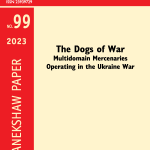Winning by Process: The State and Neutralization of Ethnic Minorities in Myanmar by Jacques Bertrand, Alexandre Pelletier and Ardeth Maung Thawnghmung. New York: Cornell University Press, 2022, 247 pp., ISBN 978-1-5017-6468-4
It is a challenging task for any developing country to pursue democracy and the case of Myanmar exemplifies this challenge. Myanmar has suffered decades of civil war, military coups, and attempted multiple times to have a democratic setup. In addition, the internal hostility between the Bamar majority and other smaller ethnic minorities, further contributes to Myanmar’s instability. Many scholars have written several books with suggestions and solutions for the problem. In the book Democratisation of Myanmar, Nehginpao Kipgen has highlighted the role of elites and their significant ability to critically negotiate for democracy in countries like Myanmar. Contrary to Kipgen, the Authors of this Book emphasises on ‘winning by process’⸺ a strategy that gives leverage to the State to manipulate the rules of negotiation, bargaining process, sites of power and resources. Such a strategy goes beyond the concepts of ‘winning by war’ or ‘winning by negotiation’, For Myanmar, the concept of “stalled conflict” is likely to be a winning strategy. ”Stalled” refers neither to resolved conflicts, nor those that are experiencing a full state of warfare (p.2).
The Authors of this Book analyses Myanmar’s stalled conflict from the period of 2011 to 2021 and its subsequent negotiation process between armed groups and the State. They illustrate how Tatmadaw and the civilian government have used negotiation to neutralise the ethnic groups and further shape the country’s future towards a federal state. The crux of the book is the development of five strategies to justify ‘winning by the process’. These are (a) lock-in: setting agenda, agreeing on rules and procedures including and excluding parties at the table; (b) sequencing: introducing steps in the negotiation and implementation process and defining an order of institutional change, sometimes with conditional steps; (c) layering: adding sites of negotiation, power and interests; (d) outflanking: engaging the opponent on multiple fronts, bypassing opponents’ official representatives; and (e) outgunning: leveraging the use of force as a tool of negotiation and defecting from agreed ceasefires or launching targets attacks as a mode of negotiation pressure (p.26). The State uses these strategies in three areas : (a) formal negotiations;(b) state institutions; and (c) war. Each chapter of the book addresses at least one of the strategies to examine the situation in Myanmar.
This book is divided into seven chapters, excluding Introduction and Conclusion. Chapter 1 introduces the readers to the conceptual framework of ‘winning by process’ and explains the five strategies used in the indicated areas.
Chapter 2 explains the evolution of the Burmese people post its independence, its relationship with ethnic minority groups and the reasons for constant hostility between the majority of Bamar and other ethnic minorities. Besides, it explains the 2008 Constitution, which brings out a new institutional framework under the military regime and subsequent debate.
Chapter 3 explains the transitional phase of Myanmar i.e. from a military to a quasi-civilian government, which took place in 2011. The critical aspect is to analyse how this transitional phase gives more room for ethnic minorities to negotiate for new powers and resources.
Chapter 4 elucidates how Tatmadaw and National Democratic League (NLD) adopted locking-in, layering and sequencing strategies in negotiations and dialogues. It further exhibits the role of institutional incentives in shaping the negotiation process by offering concessions to an ethnic minority.
In Chapter 5, the Authors highlight the importance of Civil Society Organisations (CSOs) as the ‘Third Force’. CSOs took the middle path between the military regime, Aung San Suu Kyi, and NLD. Readers are exposed to two goals adopted by CSOs viz. to take incremental steps towards greater democracy within the Constitutional framework and ask for a lift of international sanctions on Myanmar (p.112). The chapter also addresses grievances faced by locals regarding their lands and compensation issues due to the China-Myanmar Oil and Gas pipeline, 770 km long from Kyaukpyu, Rakhine in the Bay of Bengal to Yunnan Province (p.126). Adoption of new reforms and the creation of new institutions, norms and processes aligning with the Central government’s approach to accommodate ethnic minorities are key aspects of the chapter.
The penultimate chapter of the book talks about how the State outflanks ethnic minorities in education, healthcare and land management sectors. Outflanking Ethnic Armed Organisations (EAOs) gives the State more leverage to control an extra-jurisdictional entity, which was earlier at war. From this point, the last chapter presents a new viewpoint addressing the pluralisation of ethnic claims (p.149) in Myanmar. In other words, the Authors analyse the State’s willingness to accommodate and its strategy to recognise ethnic minorities after many decades of subjugation. In this chapter, the Authors underline a new transition in Myanmar, such as the recognition of 135 ethnic groups, the creation of ethnic ministers, the formation of self-administered zones (SAZs) or self-administered divisions (SAD) and the formation of new ethnic political parties (p.150). The Authors remark that ‘winning by process’ was applicable before the coup in February 2021.
It is an arduous task to understand the complexity of Myanmar. However, this Book is an eye-opener to young scholars, especially beginners, who are interested in Myanmar. Besides, the book provides new perspective for policymakers and political analysts to negotiate or bargain in a complex situation. It gives an optimistic outlook that the peace process, although it was only for a short period, has been possible in the midst of chaos. One noteworthy point of this book is the bonding the Authors are able to develop between the readers and reality on the ground. Lastly, the Book reflects the Authors’ hard work, commitment, and ability to overcome challenges during their field visits.
434c4157532f57412d3030382f323032332f30352f3038















